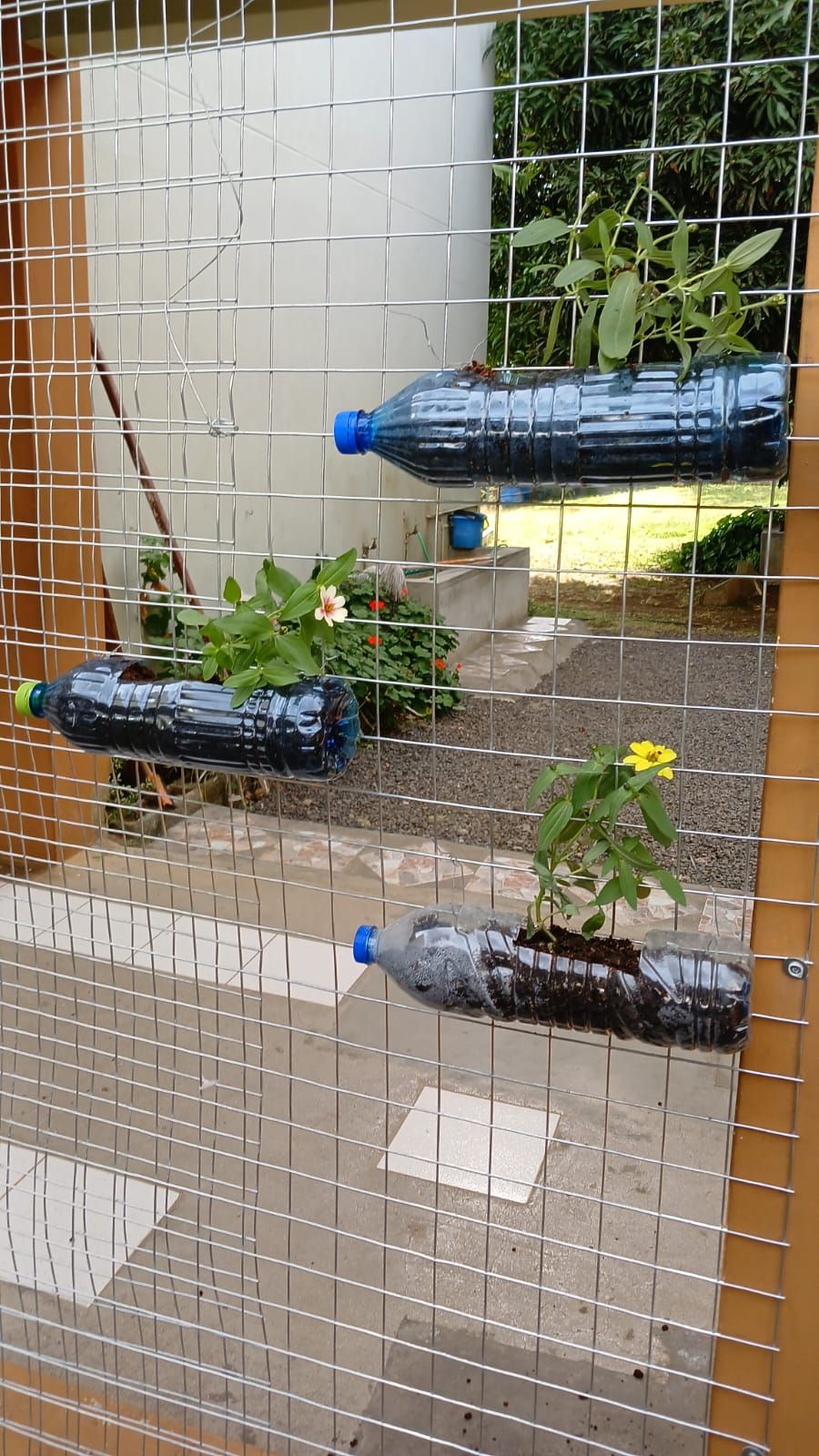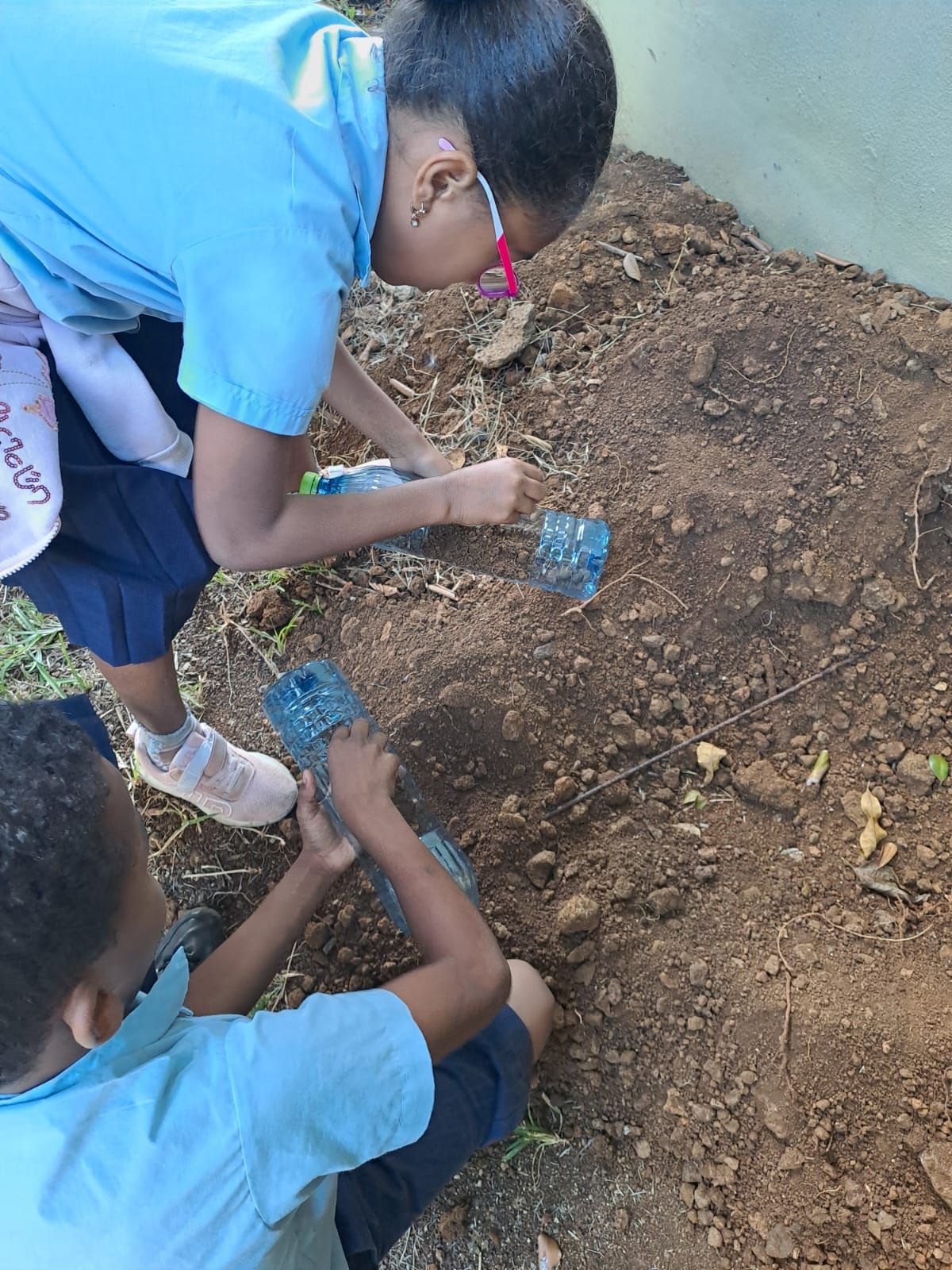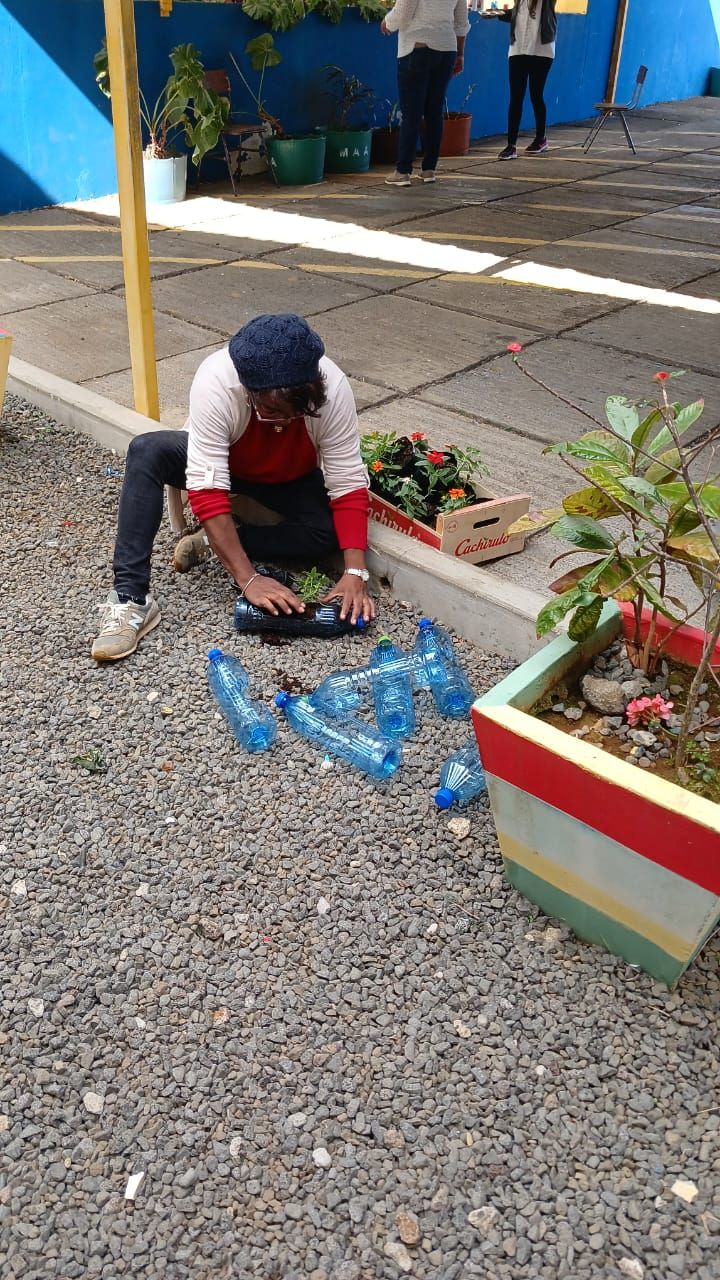@Ana_moderator yes Ana I ve tried this one . Understand the difference between climate and weather . Kids understood it .
Also we did recycling in art period to make useful things. (Recycled .)
-
Activities and resources for teaching about Climate Change
-
Supporting students with dyslexia in the classroom can be facilitated using various Microsoft tools. Utilize immersive Reader in Microsoft Word to customize text settings, such as font style, size, and spacing, making reading more accessible. Incorporate PowerPoint for visual aids and diagrams, enhancing comprehension and organization of information. Encourage collaborative learning with Microsoft Teams, facilitating peer support and group projects while providing a platform for students to communicate their needs and preferences. Additionally, leverage OneNote for structured note-taking and organization, allowing students to create digital notebooks with multimedia elements. By integrating these Microsoft tools, educators can implement multisensory instruction, provide assistive technology support, and foster a supportive learning environment for students with dyslexia.
"Empowering students through engaging education, fostering environmental consciousness, and advancing scientific literacy. Committed to shaping future leaders in Life and Earth Sciences."
-
@Ana_moderator
Hello Anna,
Climate change is an important topic which according to me should be taught from the primary level itself because it is important to sensitize our your young learners about actions to be taken to protect our environment to prevent its impact globally. I normally teach this topic through ICT by integrating my students to AR and VR. I often use Nearpod platform. Students of diverse learning needs are involved in the teaching and learning process. Children viewed videos on the impacts and consequences due to climate change. They are asked to reflect about it. This platform also provides an assessment tool where evaluation is carried out at the end of the lesson. -
Hello from sunny Uzbekistan.
Once again I decided to please you with an interesting lesson: "PROBLEMS IN THE RELATIONSHIPS OF
BETWEEN MAN AND NATURE."
Mixed lesson (learning new material, consolidation, lesson-project)
Lesson objectives:- Educational - to familiarize students
with the objectives of the lesson, to show that ecological knowledge
is the basis of human interaction with
environment, rational use
natural resources; - Educational - to form the knowledge of ecology and nature preservation; 2) Educational - to familiarize students with the objectives of the lesson.
ecology and nature conservation; - Developmental - to develop academic and
intellectual skills; to develop the ability to work with
tabular material; develop logical
thinking, cognitive interests; to develop
the ability to correctly make reasonable conclusions.
Lesson objectives:
To familiarize with the consequences of environmental
problems.
- when familiarizing with environmental problems
to form knowledge about their causes
occurrence, consequences and possible
ways of elimination (prevention)
environmental problems;
-continue the formation of the ability to analyze;
-to contribute to the further development
critical, inventive and creative
thinking of students;
-facilitate the development of the ability to generalize and
highlight the main things, systematize the obtained
knowledge.
https://www.youtube.com/watch?v=vpf_GFGozaA
Attached please find video short from this lesson
Contacts:
Shakhnoza Khamrayeva
Sehriyo School, Tashkent
WhatsApp: +998881585511
hamraeva.s@gmail.com - Educational - to familiarize students
-
@Ana_moderator yes, it is a grand challenge from challenges that face the world and in STEM school we try to solve this challenge . we encourage students to find alternative sources of energy and using eco-friendly materials in their projects.
-
@Ana_moderator said in Activities and resources for teaching about Climate Change:
According to the latest UNESCO report https://unesdoc.unesco.org/ark:/48223/pf0000383615
70% of the youth surveyed cannot explain Climate Change, or can only explain its broad principles, or do not know anything about it.
Do you talk to your students about Climate Change? How can school become a place where people get prepared for Climate Change?
Let’s try to collect climate change education practices here.
How do you teach about Climate Change?
What resourses do you use to teach about Climate Change?
Please share your ideas on the topic in the replies below
I utilize the personal values to promote the understanding that green education is an integral part of belonging
DR/Reham
-
@Ana_moderator Schools can play a crucial role in this by integrating Climate Change education across subjects, organizing workshops and field trips focused on environmental issues, and fostering a culture of sustainability within the school community. By empowering students with knowledge and encouraging them to take action, schools become effective hubs for preparing individuals to understand and respond to Climate Change challenges.
Shazia Baloch
JEST Teacher
Address: Sindh Pakistan -
@Reham125b5a4afa
Hello,
Climate change is already included in our National Curriculum Framework and pupils are assessed on it for exams. Various projects are conducted in schools so as to educate young learners about climate change, its impact and consequences on the environment. -
@Ana_moderator (https://youtu.be/yqiksXHKsR0?si=lEeXyv_vJysYwAR8)
For example, I created an Armenian audio version of this video.
I use it as a resource in my classes.Ani Bareghamayan
Art teacher
Address: Armenia -
[A game - A Green Future (created by students school Sehriyo)
Genre: Adventure game with elements of strategy and RPG.
The main elements of the plot
Setting
The game takes place in the distant future, where the ecology of the planet has declined due to the excessive use of natural resources and environmental pollution. The surviving groups of people live in isolated eco-communities surrounded by destroyed and dangerous regions. However, thanks to scientific achievements and innovative developments, humanity has found a way to restore the planet and build a green future.The main character
You play as a young scientist named Alexey who grew up in one of these eco-communes and dreams of a world where people and nature live in harmony. Its goal is to unite disparate communities and revive the planet's ecosystem. The main storyline
The beginning of the journeyAlexey receives a task from the elder of his eco-commune to go on a journey to find ancient technologies and knowledge that will help restore the environment.
During the preparation for the trip, Alexey learns about the legend of the "Green Guardian" — a mythical creature that protects the secret knowledge about the rebirth of nature.
Exploration of the destroyed landsAlexey travels through abandoned cities, deserts and infected forests, meeting various groups of people, from merchants to robbers.
Along the way, he collects artifacts and ancient technologies, and finds clues that point to the location of the Green Guardian.
New friends and alliesAlexey meets various characters who join his mission: an engineer named Lena, Igor, a medic, and Victor, a former military man.
Each of them has unique skills that help them overcome various obstacles and solve puzzles.
Solving the mystery of the Green GuardianIn the ancient ruins, Alexey and his team find a hidden underground city, where knowledge and technologies are hidden that can restore the ecology of the planet.
Here they meet the Green Guardian, an artificial intelligence created by an ancient civilization to protect nature.
The Battle for the FutureAlexey learns about a mysterious corporation that wants to use ancient technologies for its own selfish purposes in order to establish control over the remaining resources of the planet.
The team engages in a decisive battle with the forces of the corporation to protect the Green Guardian and the knowledge that can save the planet.
Restoring peaceAfter defeating the corporation, Alexey and his friends begin a large-scale project to restore the planet's ecosystem using the acquired knowledge and technology.
People from different eco-communities come together to work together, and gradually nature begins to revive.
The epilogueSeveral years have passed. The planet is beginning to be covered with green forests and clean rivers, and people are learning to live in harmony with nature.
Alexey becomes a symbol of hope and continues to work to improve the ecology of the planet, passing on his knowledge to the next generations.
Gameplay
Exploring the world: The player travels through the open world, explores destroyed territories and collects resources.
Solving puzzles: Solving ancient mysteries and activating technologies to restore nature.
Battles: Fight against enemies including wild animals, mutants and corporate mercenaries.
Resource management: Collecting and using resources to improve eco-communities and restore nature.
Social interactions: Interacting with various characters, making decisions that affect the plot and relationships with allies.
Green Future offers players an exciting story about survival, friendship and the restoration of the planet, encouraging them to reflect on the importance of environmental protection and sustainable development.](https://youtu.be/DSw6joFWq1A)Contacts:
Shakhnoza Khamrayeva
Sehriyo School, Tashkent
WhatsApp: +998881585511
hamraeva.s@gmail.com -
@Ana_moderator Absolutely! Plastic pollution is a critical issue intertwined with climate change education. It's crucial to highlight how plastics contribute to environmental degradation, from greenhouse gas emissions during production to their persistence in ecosystems, impacting biodiversity and human health. Addressing plastic pollution is integral to fostering sustainable practices and mitigating climate change effects.
-
@Bousl2336873cb4 great work my friend. I want to share also my YouTube channel link with you
-
@Shakhnoza That sounds like a fantastic Project-Based Learning (PBL) initiative focused on herbal plants and their benefits! This is an excellent example of how PBL can be used to engage students in real-world, interdisciplinary learning
-
@Reham125b5a4afa Sounds great - it is like "walk what you preach" approach
-
@Shakhnoza said in Activities and resources for teaching about Climate Change:
Alexey becomes a symbol of hope and continues to work to improve the ecology of the planet, passing on his knowledge to the next generations.
Gameplay
Exploring the world: The player travels through the open world, explores destroyed territories and collects resources.
Solving puzzles: Solving ancientWow! This is a great idea for the lesson, thank you for sharing!
-
@Ana_moderator
Dear colleagues, in addition to paper recycling, we also gave new life to plastic and tried to share our ideas with our colleagues.
This is made from a plastic bag.(https://drive.google.com/file/d/18hNEMq5FXfqbMp8AWSdXgCP9ikqCK_fg/view?usp=drivesdk)
This vase is made from a bowl of liquid.
(https://drive.google.com/file/d/18WmvnerAPCH-4sIBbnsxUmJviaCwCu8o/view?usp=drivesdk)
And this is from disposable cups.
(https://drive.google.com/file/d/18LYMQ5i0_A6RoNKq6t57jFMQXgg3KBjI/view?usp=drivesdk)And what did you make of plastic?
Ani Bareghamayan
Art teacher
Address: Armenia -
@Samar-Mohamed
Hello Samar,
The concept of 3Rs can be encouraged among learners to prevent plastic pollution: reduce, reuse and recycle. In my school, we are sensitising students about protecting the environment. Parents and members of the community are involved in school activities to prevent plastic pollution. Plastic bottles available at school are being transformed into flower pots and students are encouraged to plant their favourite flowers. -
@Ani-Bareghamyan
Hello,
In my school, various activities are being organised to implement the 3 Rs: Reduce, Reuse and Recycle. Students are different grades are included in the project.


-
@Ana_moderator
Activities for Teaching Climate Change
Interactive Simulations: Use online tools like NASA's Climate Kids or the UN's Climate Change: Take Action Now to simulate the effects of climate change.
Classroom Discussions: Hold discussions on recent climate news, encouraging students to share their thoughts and propose solutions.
Project-Based Learning: Assign projects where students research local climate issues and present their findings.
Field Trips: Visit local environmental organizations, weather stations, or ecosystems affected by climate change.
Experiments: Simple experiments, like measuring temperature changes with and without greenhouse gases, to demonstrate the greenhouse effect.
Art and Writing: Have students create art or write essays about the impact of climate change and ways to combat it.
Resources for Teaching Climate Change
NASA Climate Kids: Provides interactive games, activities, and information tailored for younger audiences.
National Geographic Education: Offers lesson plans, videos, and articles on various climate-related topics.
EPA Climate Change Website: Includes educational materials, lesson plans, and data on climate change.
Climate.gov: Provides a wealth of information, including data sets and teaching resources.
TED-Ed Lessons: Features videos and lessons on climate science and solutions.
IPCC Reports: Although technical, these reports provide in-depth scientific data and findings on climate change. -
Dear @Housna
You have done a great job, keep it up. I have planned to organize an exhibition this year from the waste of plastic bags and plastic bottles, which we will collect from the area of the nearby river. We hope it will work, so I will introduce the children to the problem of the global ocean.Ani Bareghamayan
Art teacher
Address: Armenia